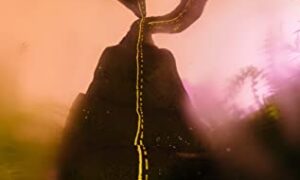 The Ploughmen by Kim Zupan
The Ploughmen by Kim Zupan
My rating: 5/5 cats





Darling – come alone to the shed.
goosebumps…
this is a book written in a dispassionate, matter-of-fact prose, but not so much that it comes across as detached. there is a wonderful filament of restrained emotion running through it that is pure poetry.
it’s about the uneasy relationship between two men – a grizzled old criminal finally caught in his seventy-seventh year, and a young deputy with marital troubles and a tragic past, who meet in the prison where val millimaki, the deputy, has been given the overnight watch detail over the incarcerated gload. this takes place in the stark montana landscape, which is painstakingly and gloriously described on every page, with a particular emphasis on birds. so many birds. so much detail. but that’s the kind of thing i love in these books – the landscape is as much a character as the people, and is just as hard and unforgiving as gload himself.
The wind shook the trees and their branches gnashed and shuddered and the wheat-pale needlegrass down every row lay on the ground. He stood at the prescribed spot looking through the gnarled trunks beyond which the sun burned slowly down. He moved forward a few paces and looked and he moved back, trying to see it as a stranger might. He squinted his eyes and through the ruddled apertures the cured orchard grass and the dark slender tree boles quaking against the sky were an impressionist’s blur of blue, ocher, dun. The grass bowed and hissed in the wind and waiting he heard the dull pong of the harrow tines, hung in a tree like a rude mobile or wind chime, and then he went back.
their relationship builds in a slow burn. gload is an incredibly clever man – having (mostly) avoided incarceration these long years by being an astute judge of character who manipulates people as needed. but he sees something in val – a shared love of nature and the land – and he develops an almost paternal affection for him. in some ways, their relationship reminded me of the dynamic between nick nolte and james coburn in the film-version of affliction. (which i have also read, but their acting in their shared scenes is burned into my brain and is some of the most fun i have had watching two incredibly angry men push against each other growling like bears.)

val never becomes what nolte becomes, but there is the same kind of fuse lit between the men, as their lives and stories bounce off each other, and the book has similar themes of anger and violence and family baggage.
it’s just a story of how things happen. how criminals make mistakes, how marriages fall apart, how age takes its toll while the seasons pass and the land changes impassively, and it is chock-full of fantastic scenes where gload passes along what he has learned to the younger man in their shared insomniac moments.
“I’ve seen it a hundred times. Who you marry just goddamn turns out to be some other person after a while. Grows up into somebody else. Not better or worse. Just different.
or
“One thing I always did, Val, was to live my life. It wasn’t a particularly interesting life but it was on my terms. Now in here I’m just living it out…Now it’s just waiting. It’s only a life technically because you’re breathing in and out. Putting in the time until you clock out.”
val is susceptible to gload’s brand of father-friendship, emotionally vulnerable because of his insomnia, a wife who wants more than he can provide, and having been burnt out working a string of unrelated missing-persons cases; sent out with his dog to follow leads, and finding only corpses, time after time. his life is a series of blurred events, being carried forward by an exhausted momentum.
He lurched red-eyed through his days in a purgatory described by home and the jail, content in neither place. A bird laboring in a hurricane wind, moving nowhere yet unable to alight. How different from the animated skeletons of Gload’s old folks’ home was he?
but val is essentially a compassionate man, and it’s an unlikely and complicated friendship that develops despite the obstacles of gload’s inherent hatred of cops and the responsibilities of val’s job.
“We’re friends, John, inasmuch as you’re in there for possibly killing somebody and I’m out here making sure you stay alive to be punished for it.”
and, after gload’s confession that he could have killed val at any time during their acquaintance:
“Friendship, then, because you didn’t kill me.”
His tired eyes stared into Millimaki’s. “It does not, Deputy, get truer than that.”
which is totally hannibal-reasoning

with a little bit of true detective thrown in, replacing all that time is a flat circle with ex nihilo nihil fit.
it’s overall a bleak tale, but with some rusted hope holding it all together.
He’d never really thought about it, had merely gone where he’d been told and done what he’d been told and reveled in the earsplitting monotony and the reverie it provided.
the revelation of a life unlived and the purpose and freedom that rage can provide when polite restraint loosens its grip.
gload isn’t a robin hood figure; no honorable thief, but he does what he does, and he has a code.
“There’s times when you do that – look back and think, I should of done this or that or some other thing. Like with that kid. I don’t have a lot of those times, a handful, but what I do know is that you can’t never ever let them get under your skin. You did what you did at the time an at the time it was right. I regret almost nothing. This thing here lately. Some others. But I ain’t been eat up by them, either.”
and, my, how he gets to the heart of those damn birds, gulls especially:
And he told the deputy that the gulls began to arrive. They appeared first as minute white tufts against the green of the river trees and he turned and made a pass going away and then suddenly they were among the furrows behind the plow, as though like the soldiers of myth they sprang from the ground itself. He wondered how they found him and thought they may have followed the dust cloud or perhaps like wolves or hounds on a blood scent they could smell the new-turned earth. He threw the tractor into neutral and sat watching as the birds gorged themselves on tiny infant mice he had exposed from under small rocks and glistening worms as long as garter snakes and crickets and partridge nestlings and even above the pothering of the engine he could hear the gulls scream. They fought over every mouthful, the most successful of them gagging down pieces that would have choked a hyena and in the chaos of screeches there were times it seemed they would set upon one another until one gruesome bird remained, engorged and wallowing through the furrows unable even to raise his bloodied wings to fly.
it’s a striking, taut novel, filled with heartbreaking moments (the story about gload’s father – aaargh) as well as the bloodshed. this is perfect for cormac mccarthy fans, or anyone who likes well-written, quietly profound stories in the grit-lit vein with equal parts violence and beauty.
love.
He took up a handful of dirt and let it sift through his fingers. The wind came down from the northern benchlands and rattled the strange larval pods of the yuccas and brought the faint thin cries of gulls he could see afloat and stationary as kites against the morning sky. He tried to reconcile the avuncular old man tendering comfort and counsel from his dark cage with the creature who could placidly dismember a fellow human being. A lifetime ago while eating an apple… beside railroad tracks on a golden spring day, John Gload had observed in himself with a curious detachment the absence of passion. Perhaps he was somehow exempt from responsibility at all, could no more be blamed that could a child born without feet be blamed for his inability to run.
Millimaki sat in the dirt staring blankly at the grave, benumbed by sleeplessness. Gload seemed capable of kindness, but it may have been just a kind of vestigial feature, like the webbed and blunted limbs of thalidomide children – a half-developed grotesquery that made him more pitiable for the reminder of what it might have been like to be whole.
For the rest of us though, thought Millimaki, the distance from reason to rage is short, a frontier as thin as parchment and as frail, restraining the monster. It was there in everyone, he thought. It was there in himself. A half-second of simple blind fury and the hatchet falls down.







